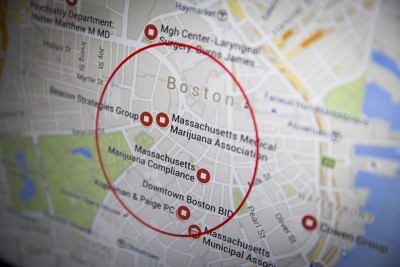
In light of an ordinance signed Friday by Boston Mayor Martin Walsh establishing a “buffer zone” between marijuana dispensaries, public records reveal that dispensary owners donated funds to campaigns of public officials in an effort to lobby for the ordinance.
The new zoning laws, if approved by the Boston Zoning Commission of the Boston Redevelopment Authority, will “limit the siting of any marijuana dispensary, whether medical, recreational or any other type, no closer than one half of a mile, or 2,640 feet, from any other existing dispensary,” according to the ordinance.
Samantha Ormsby, a spokesperson for Walsh, wrote in an email that the mayor supports the zoning amendments despite his opposition to recreational use of marijuana.
“While Mayor Walsh voted against the legalization of medical marijuana, he supports the law that is in place and wants to make sure it is implemented correctly for the people of Boston,” Ormsby wrote.
Councilor Michael Flaherty offered this order regarding a text amendment for the Boston Zoning Code for marijuana dispensaries.
According to the ordinance, potential recreational marijuana dispensaries established in the future will be affected by the zoning law.
Jim Borghesani, a spokesperson for the Campaign to Regulate Marijuana Like Alcohol, said the ordinance only applies to medical marijuana dispensaries.
“There is no buffer zone now for liquor stores,” Borghesani said. “There’s no buffer zone for a store that sells tobacco products. And yet, the City Council saw fit to impose this ordinance, which at this point applies only to medical marijuana dispensaries because no other dispensaries exist.”
Borghesani said the ordinance would benefit Patriot Care, the only dispensary owner in Boston.
“I think it would be proper for voters to question what’s really behind this ordinance,” Borghesani said. “It seems to benefit the only company that has so far been permitted to sell medical marijuana, Patriot Care.”
Bill Downing, a member of the Massachusetts Cannabis Reform Coalition’s Board of Directors, said Patriot Care would benefit if the ordinance passes. For that reason, Patriot Care made campaign donations to multiple city officials in an effort to lobby opposition of recreational marijuana use, which would discourage competition.
“Again, we have a situation where a medical marijuana dispensary is trying to prevent competition by paying a lobbyist to run a campaign against legalization,” Downing said. “They want to be the only ones in the area, and so that’s why they have a tremendous interest in having this zoning restriction passed — to eliminate potential competition.”
Downing said he believes this decision came as a result of pressure from lobbyist Daniel Delaney.
“Patriot Care employs a lobbyist by the name of Dan Delaney,” Downing said. “They pay Dan Delaney to do lobbying work for them through his group, Delaney Policy Group. It’s not a coincidence that Dan Delaney is starting a prohibition lobbying effort called Face Cannabis Massachusetts and they’re trying to maintain the prohibition and he’s receiving financing from Patriot Care.”
Public records provided by the Massachusetts Office of Political and Campaign Finance show that Delaney made contributions totaling $200 to Flaherty. Delaney, who has previously worked for the Department of Public Health and the Massachusetts House of Representatives’ Committee on Public Health, also made contributions totaling $300 to Walsh.
The records also show that Patriot Care CEO Robert Mayerson contributed a donation of $500 to Flaherty on Oct. 15, 2015. Mayerson made contributions from 2014 to 2016 to several government officials who saw the bill, totaling more than $2000.
Dennis Kunian, a spokesperson for Patriot Care, also made contributions to Flaherty totaling $250 and contributions to other government officials who saw the ordinance totaling more than $800 since 2015.
Flaherty’s office was unavailable to comment.
Several Boston residents shared their opinions regarding the legalization of marijuana.
Nikolas Wagner, 18, of Brighton, said the buffer zone would not affect Boston residents as much as it would dispensaries.
“It doesn’t matter if you have to walk 300 meters more or, like, one mile more,” he said. “It doesn’t matter if you have a buffer zone. I think it’s not that useful.”
Regarding the potential legalization of recreational marijuana use in Massachusetts, Wagner said the decision could bring benefits to the city.
“Maybe the crime rate would go down, especially kind of drug deals,” he said. “It depends on what the city is doing with the tax, because I think they would take a high tax on it. So it would bring money for the city.”
Sho Nakano, 22, of Brighton, said the United States has a bizarre range of laws regarding the legalization of marijuana.
“I feel so weird about marijuana in America,” he said. “When I went to California, they can use marijuana legally, but in other parts they can’t. You’re also talking about only in Boston, and Massachusetts is the whole state.”
Kennedy Davis contributed to the reporting of this article.






















































































































